Speak easy: How neural networks are transforming the world of translation
Translation software has gone from a joke to a genuinely useful business tool, thanks to machine learning


Neural knowledge
Towards the end of April 2017, an update was released for Google Translate allowing it to decipher between English and nine Indian languages using neural machine translation technology. Previously, Translate only supported translations between English, French, German, Spanish, Portuguese, Chinese, Japanese, Korean and Turkish. This was an essential step, as for multilingual countries like India, which has 23 official languages, translation is often required for domestic communication, not just international.
Google highlights that: "This new technique improves the quality of translation more in a single jump than we've seen in the last ten years combined". Yet adding more languages also had an unexpected benefit: that neural technology speaks a language better when it learns several at a time, similar to how it's easier for humans to learn a language when they know a related one. This means if there isn't a lot of sample data for one language, such as Bengali, but there is a lot for another, like Hindi, then the translation is able to use one to intelligently fill the gaps in the other.
Google Brain, the company's dedicated deep learning and AI research project, recently announced researchers there are using neural networks to aid language translation from speech to text. A user speaks the language they want translated and it's then written in a different language straight away eliminating the need for a transcription of the text in the original language.
Translating speech directly to text can be useful in a number of ways. One example is Robot Lawyer's Do Not Pay, which was originally built to help people work out if they had to pay a parking fine or not, but now also helps people apply for refugee status in countries where they will typically not speak the native language. Another example is Babylon, an AI-powered health app that helps users diagnose themselves through a series of questions. Opening it up to other languages increases the number of people it can help.
Improving translation
According to Rick Rashid, founder of Microsoft Research, in the 10 years between 2000 and 2009 there was no change to word error rate in automatic speech recognition (ASR) software that transcribes speech into text.
But, thanks to the development and implementation of deep-learning neural networks, researchers at Microsoft, the word error rate in translations was improved drastically.
"In 2012 I was able to stand up on stage in Tianjin, China and have my own voice simultaneously translated from English to Chinese live on stage," Rashid says. "This was a testament to the huge improvement in word error rates and to the translation technology we put in place."
Sign up today and you will receive a free copy of our Future Focus 2025 report - the leading guidance on AI, cybersecurity and other IT challenges as per 700+ senior executives
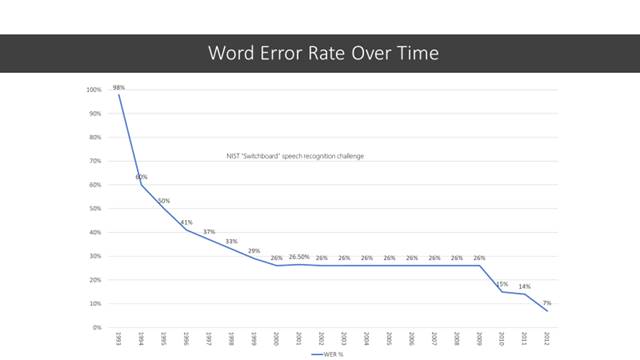
This technological jump could aid the business world, where organisations span multiple countries and continents and where clients or colleagues often don't speak the same language. In particular, it can help SMBs grow faster and expand into areas of the world where the language barrier would otherwise present a significant obstacle.
It may have a huge impact on cross-industry learning too. Communication across borders would be vastly improved, and the sharing of information and data would be made more efficient as a result. More business models can be adapted and put to use in different industries to foster ground breaking change.
There's still much more to be explored with neural networks and Gelenbe still thinks the most exciting neural network discoveries await us.
"To understand how our brain does very complicated things very quickly and so efficiently, is still before us - the future will be more exciting than the past."
Image sources: Header: Bigstock; First image: Google; Graph: Rick Rashid
Zach Marzouk is a former ITPro, CloudPro, and ChannelPro staff writer, covering topics like security, privacy, worker rights, and startups, primarily in the Asia Pacific and the US regions. Zach joined ITPro in 2017 where he was introduced to the world of B2B technology as a junior staff writer, before he returned to Argentina in 2018, working in communications and as a copywriter. In 2021, he made his way back to ITPro as a staff writer during the pandemic, before joining the world of freelance in 2022.
-
 Intel targets AI hardware dominance by 2025
Intel targets AI hardware dominance by 2025News The chip giant's diverse range of CPUs, GPUs, and AI accelerators complement its commitment to an open AI ecosystem
-
 Calls for AI models to be stored on Bitcoin gain traction
Calls for AI models to be stored on Bitcoin gain tractionNews AI model leakers are making moves to keep Meta's powerful large language model free, forever
-
 Why is big tech racing to partner with Nvidia for AI?
Why is big tech racing to partner with Nvidia for AI?Analysis The firm has cemented a place for itself in the AI economy with a wide range of partner announcements including Adobe and AWS
-
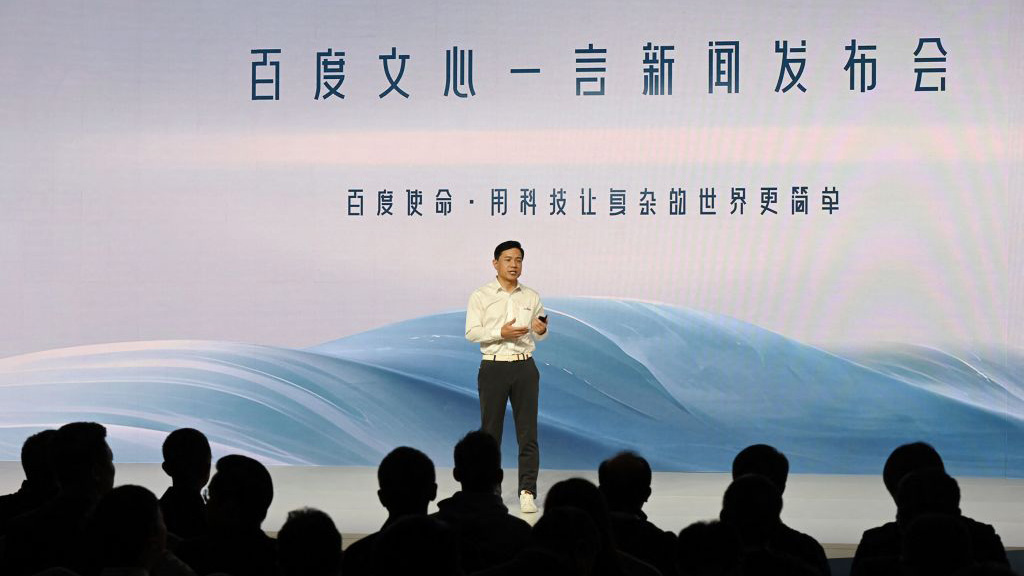 Baidu unveils 'Ernie' AI, but can it compete with Western AI rivals?
Baidu unveils 'Ernie' AI, but can it compete with Western AI rivals?News Technical shortcomings failed to persuade investors, but the company's local dominance could carry it through the AI race
-
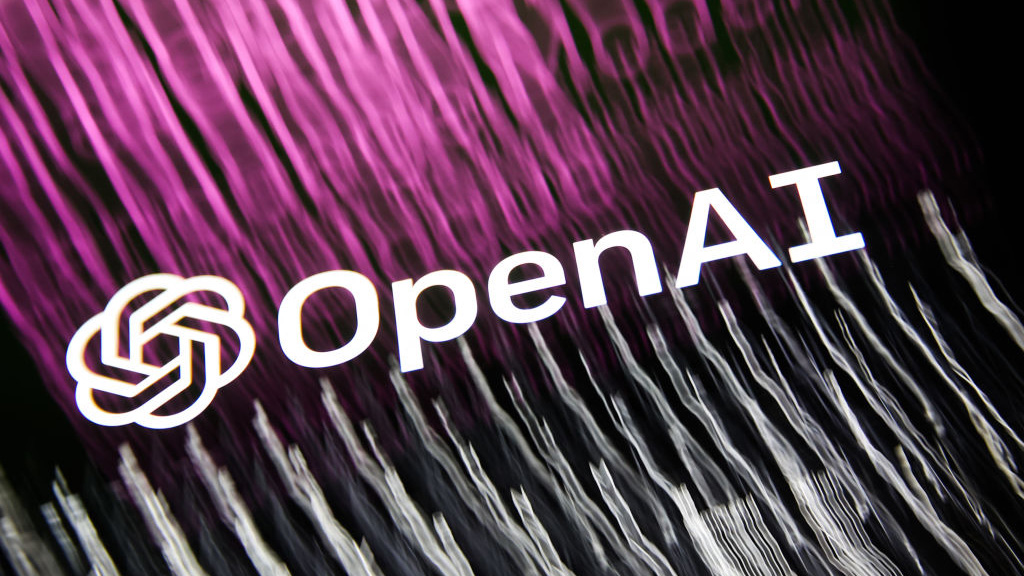 OpenAI announces multimodal GPT-4 promising “human-level performance”
OpenAI announces multimodal GPT-4 promising “human-level performance”News GPT-4 can process 24 languages better than competing LLMs can English, including GPT-3.5
-
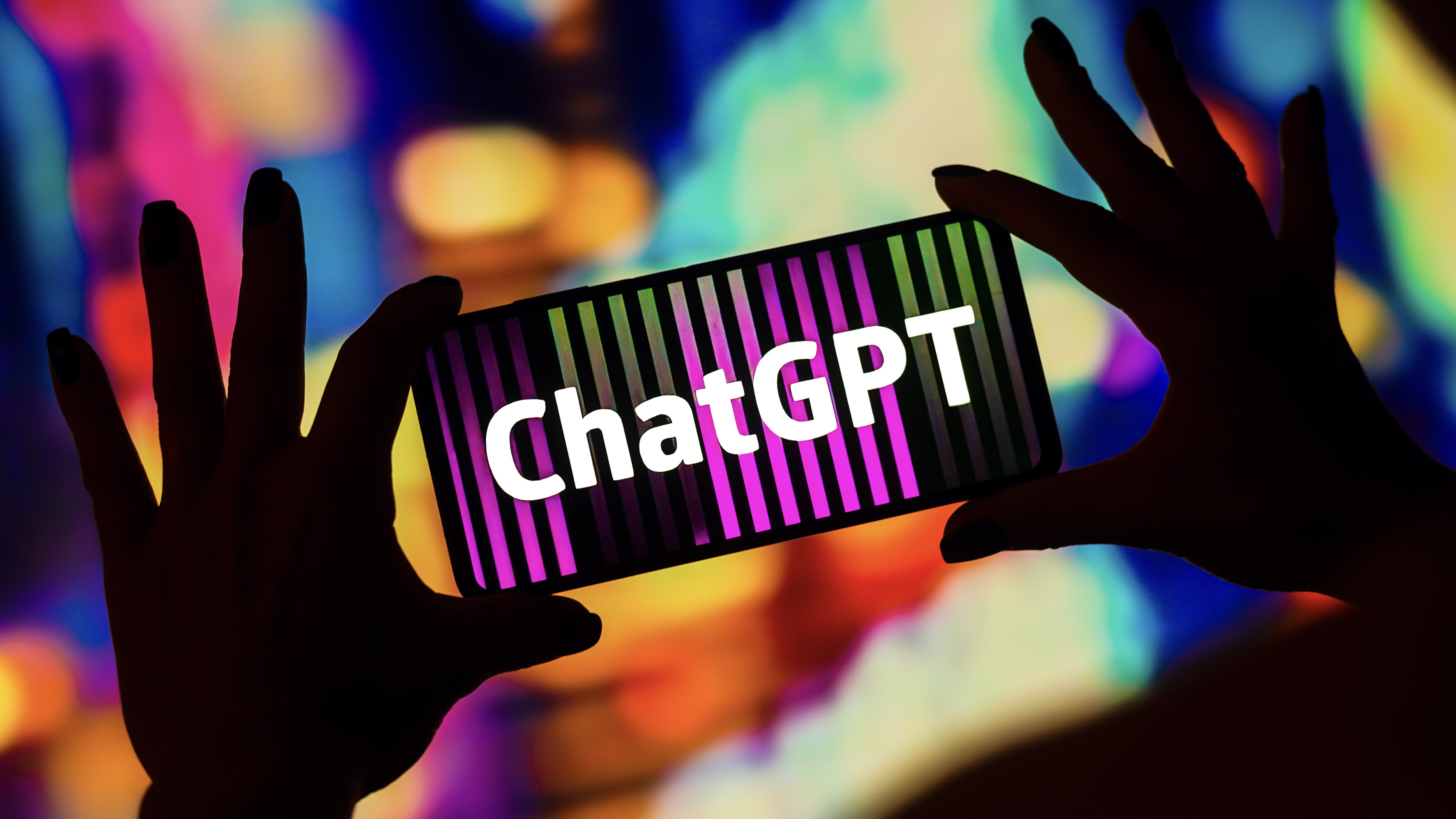 ChatGPT vs chatbots: What’s the difference?
ChatGPT vs chatbots: What’s the difference?In-depth With ChatGPT making waves, businesses might question whether the technology is more sophisticated than existing chatbots and what difference it'll make to customer experience
-
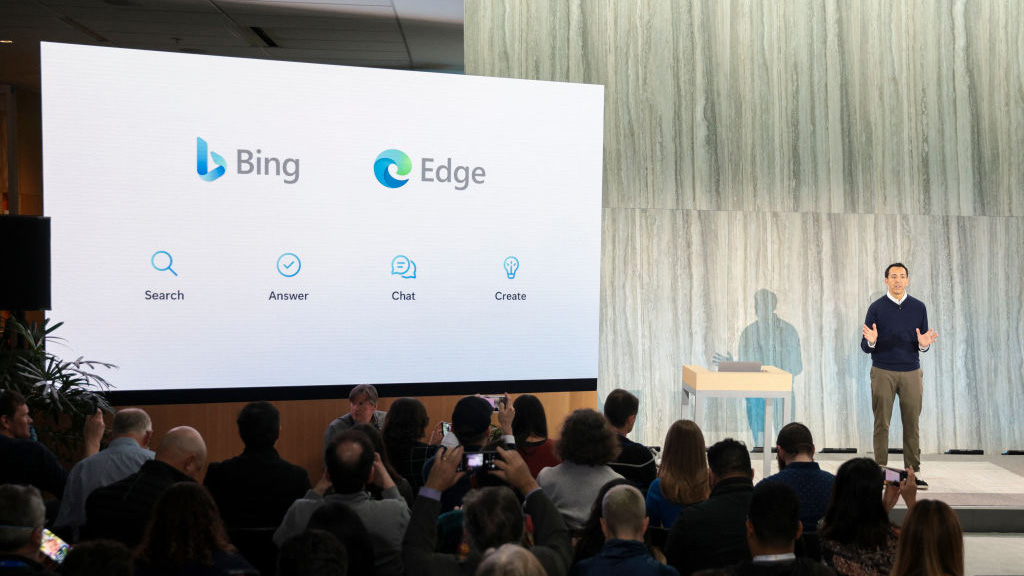 Bing exceeds 100m daily users in AI-driven surge
Bing exceeds 100m daily users in AI-driven surgeNews A third of daily users are new to the past month, with Bing Chat interactions driving large chunks of traffic for Microsoft's long-overlooked search engine
-
 OpenAI launches ChatGPT API for businesses at competitive price
OpenAI launches ChatGPT API for businesses at competitive priceNews Developers can now implement the popular AI model within their apps using a few lines of code


